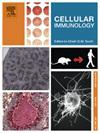Investigating the effect of neuro-immune communication on immune responses in health and disease: Exploring immunological disorders
IF 2.9
4区 医学
Q2 CELL BIOLOGY
引用次数: 0
Abstract
Recent recognition of the intricate nervous-immune system interplay has prompted research into the specific cellular components involved in these interactions. Emerging evidence suggests that immune and neural cells collaborate within distinct units and act in concert to regulate tissue function and provide protection. These specialized neuro-immune cell units have been identified in diverse body tissues, ranging from lymphoid organs to the bone marrow and mucosal barriers. Their significance has become increasingly apparent as they are recognized as pivotal regulators influencing a broad spectrum of physiological and pathological processes. This recognition extends to critical roles in hematopoiesis, organ function, inflammatory responses, and intricate tissue repair processes. This review explores the bidirectional communication between the nervous and immune systems. The focus is on understanding the profound impact of this communication on immune cells within key anatomical sites, such as the bone marrow, gastrointestinal tract, and lymphoid organs. By examining these interactions, this review aims to shed light on how this intricate network operates under normal and pathological conditions, offering insights into the mechanisms underlying health and disease.
研究健康和疾病中神经免疫通讯对免疫反应的影响:探索免疫紊乱
最近对复杂的神经-免疫系统相互作用的认识促使人们对参与这些相互作用的特定细胞成分进行了研究。新出现的证据表明,免疫细胞和神经细胞在不同的单位内协作,共同调节组织功能并提供保护。这些特殊的神经免疫细胞单位已经在不同的身体组织中被发现,从淋巴器官到骨髓和粘膜屏障。它们的重要性已经变得越来越明显,因为它们被认为是影响广泛的生理和病理过程的关键调节因子。这种认识延伸到造血、器官功能、炎症反应和复杂的组织修复过程的关键作用。本文综述了神经系统和免疫系统之间的双向交流。重点是了解这种交流对关键解剖部位(如骨髓、胃肠道和淋巴器官)免疫细胞的深远影响。通过研究这些相互作用,本综述旨在揭示这个复杂的网络在正常和病理条件下是如何运作的,为健康和疾病的潜在机制提供见解。
本文章由计算机程序翻译,如有差异,请以英文原文为准。
求助全文
约1分钟内获得全文
求助全文
来源期刊

Cellular immunology
生物-免疫学
CiteScore
8.20
自引率
2.30%
发文量
102
审稿时长
30 days
期刊介绍:
Cellular Immunology publishes original investigations concerned with the immunological activities of cells in experimental or clinical situations. The scope of the journal encompasses the broad area of in vitro and in vivo studies of cellular immune responses. Purely clinical descriptive studies are not considered.
Research Areas include:
• Antigen receptor sites
• Autoimmunity
• Delayed-type hypersensitivity or cellular immunity
• Immunologic deficiency states and their reconstitution
• Immunologic surveillance and tumor immunity
• Immunomodulation
• Immunotherapy
• Lymphokines and cytokines
• Nonantibody immunity
• Parasite immunology
• Resistance to intracellular microbial and viral infection
• Thymus and lymphocyte immunobiology
• Transplantation immunology
• Tumor immunity.
 求助内容:
求助内容: 应助结果提醒方式:
应助结果提醒方式:


